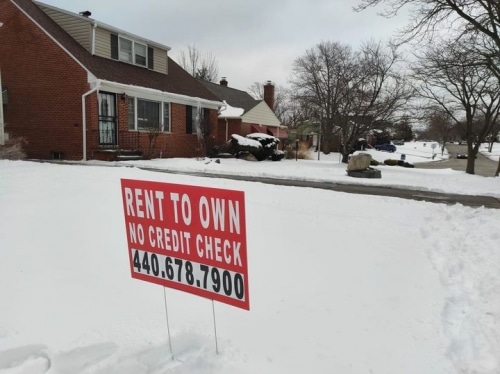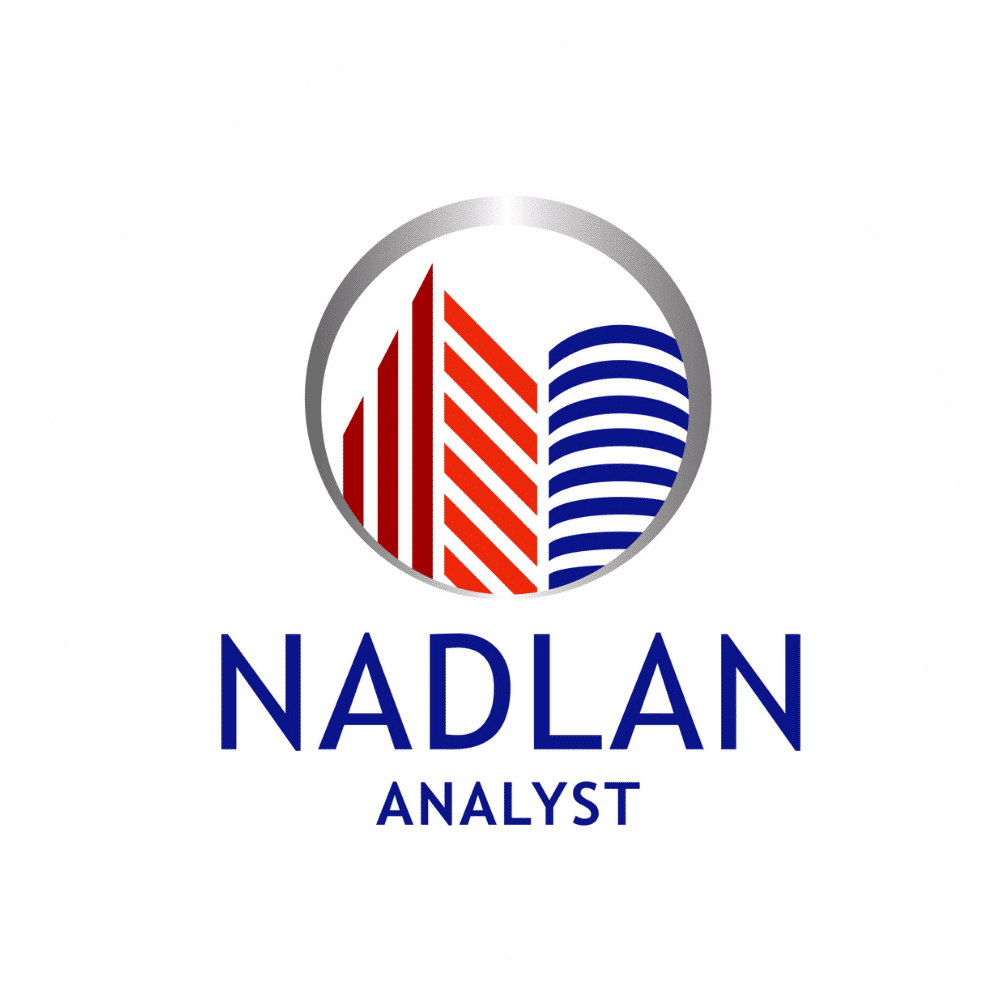# Entrepreneur of the Week # Post 4 seller financing / owner financing Same thing… As I wrote in the post yesterday, we…

seller financing / owner financing
Same…
As I wrote in a post yesterday, we are working with 2 very different but very similar methods.
The main point that differentiates between a finance transaction and a lease option transaction is the sale transaction.
That is, while in a finance transaction a sale is performed, in Bliss the put option is a side effect of completing the transaction.
Contract For Deed (CFD) / Land Contract
Describe the legal instrument used to make such a sale. Varies from state to state, in Ohio we work with CFDs.
So, how does it work?
We as owners of the house get into the shoes of the bank!
Anyone who has not seen The Banker a must-see movie!
We sell the property to a buyer who for various reasons can not / does not want to take a mortgage from the bank. We set a selling price, interest rate and a period for the payment schedule (amortization). At the time of signing we will receive a downpayment down payment and throughout the period we have defined we will receive regular payments. It is important to emphasize these are not rent payments and these are payments consisting of principal plus interest.
Why should we do that?
Two reasons
The first…
Easy… to make more money! ????
The second reason is that we have a “garbage house” and there is no bank that will agree to finance it or approve our buyers financing in the future. Therefore, we will not be able to make a lease option.
Remember? A house is suitable for a leased option only if both conditions are met. Both buyers who want to buy and a bank that will agree to finance.
Similar to the Lease Option deal once we have made the tenant a landlord, we enjoy the same change of position and all the benefits I talked about in the previous post (I am lazy who does not remember, please return to post 3).
Unlike Melis Option, in a finance transaction the buyer will be responsible for all payments! Including insurance and taxes.
Of course if the bank is not willing to give a mortgage to the tenant there is probably a reason, so we will have to price that reason both in the sale price of the house and in the percentage of interest on the loan.
How much interest? As much as possible… Everything is negotiable.
Benefits for sale in finance for a tenant:
1. Sale at a price higher than the market price by tens of percent!
To all those investors who sold them deals in 40K who thought they had made the deal of their lives until they realized it just didn’t work.
For all those investors who bought houses at 80K and realized that the house is only worth 40K (it hurts but there are so many of these).
A sale on finance can be a great strategic exit from the bar, and it is a tool I really like to use in situations like this.
2. Sale of a house even if it is not in good condition! In such deals the house does not have to be sweetened, no problem if there is an old kitchen or dirty carpets, in advance we are dealing with a population with lower standards, and what we are selling here is an opportunity and not a dream house.
3. Management and control! Anyone who has worked in low-income areas knows that getting paid on time, if at all, is a privilege that should be appreciated. A sale on Finance produces us much more control and a significantly higher return. The tenant knows that if he pays on time throughout the period, eventually the house will be his and he usually treats us and the house accordingly.
4. Tax benefit! If there is to be a capital gains tax on the difference between the purchase price and the sale price, the tax payment will be distributed according to the loan period, and in offsetting expenses and depreciation a professional accountant will be able to write off the tax liability.
5. Sophisticated exit strategy! The same mortgage we created with the tenant (Note) has buyers. If we do it right we can sell the debt itself to another investor and get out of the deal with cash. (A complex area that needs to be known in advance)
I did not forget…
We are suspicious Israelis…
Where's the catch ??
So…
There's a big catch!
It is important to know the laws in each and every country because there are huge differences!
In the example I will refer to the state of Ohio but if anyone did! Know! And know! Laws from other countries I would love to hear in the comments.
In contrast to a lease option transaction in which there is no problem to make an auction as long as the transaction is planned legally, in the Pines transaction we may find ourselves facing a foreclosure process easily!
Just so you understand what the differences are, the cost of an auction is $ 500-1000, and the process takes about 60 days.
The cost of a standard uncomplicated foreclosure is $ 4000-6000 and the process takes about 10-18 months!
I do not know about you, but I will have to get a lot to know that I take this risk. If the buyer decides to stop paying first thing I have to pay thousands of dollars to a lawyer and court fees, and secondly I have to wait a year plus until I see the house back.
Two main points that can lead us to a foreclosure in the state of Ohio (there are more subtleties but we will focus):
1) The buyer holds 20% equity in the value of the property specified in the contract. That is, if the buyer puts 20% of the value of the property as a down payment, we will not be able to give him an auction!
For the sophisticated, even if he only gave a 10% down payment and during the period in which he did pay he managed to accumulate another 10% of the property price, the buyer reached 20% and again we will not be able to do an auction for him!
2) If the buyer has paid 5 years of payments, we will not be able to make an auction!
In short, unpleasant…
So how do you do that?
I personally do not sell a lot of such deals to homeowners, but there are situations that this is the only solution and then I will focus on two points that keep me relatively:
1) As a sales person I always try to take everything I can from the buyer. In that case I fight the craving. I build the deal in such a way that I will know that the buyer is going to take time, usually at least a year and a half two years until he manages to reach 20% equity in the property. I am aiming in advance for a lower down payment / raising the interest component / raising the sale price, in order to make it harder for the tenant to accumulate equity. As time goes on and the tenant meets the payments, the likelihood increases that he will complete the transaction. A tenant who has been in payments for two years is highly likely to continue to pay on time. If not… I received two years of payments plus a down payment. If we go to foreclosure there will be how to fund it.
2) Very very strict filtering of buyers - I know exactly what the rubber duck I am looking for looks and sounds like. Not everyone who has $ 5000 or $ 10000 is going to enter the house. On the contrary… When you have a buyer in these areas with $ 10000 cash it's just time to start suspecting!
How do I do finance transactions?
I sell them mostly to local American investors and not to tenants who own homes. The deal is less profitable no doubt, and no I will not sell a house of 40K at 80K, but I will sell it at 50K maybe even a little more and at 7% -8% interest. Usually. For short periods with a balloon of 3-5 years.
Investors manage and maintain their assets themselves and cheaply and have no problem dealing with junk.
vice versa…
Just so you understand that anyone who knows how to work in Cleveland's garbage (90% of the city of Cleveland itself), is making returns of 30% -50%! Crazy numbers!
The house is part of their business and therefore highly likely to pay. If not paid, there is someone to chase and sue.
Plus if you do it right, you can take over the assets back immediately, even if we haven't even started the foreclosure process yet!
It is possible to sell these homes one by one in finance to an investor as I mentioned. But in cases and there are investors who own several properties of this type, I usually consolidate them all under one transaction. I find an experienced American investor who knew how to take the whole package.
In this way, in advance we can bring in more serious investors and a lower level of risk. Another advantage of selling a cluster, is that it will be much easier, cheaper and even profitable for me to attack the same buyer, in case a problem arises in the future.
In many cases I would love for him not to pay (not really, but you will not see me sweating because of it).
As with any deal there are pros and cons, and everyone has to make their own considerations depending on the situation they are in, and in this case also depending on the country in which they are investing. Selling in finance can be an amazing solution to difficult problems, but it is imperative to do it professionally in order to avoid costly mistakes.
Questions in the comments (:

The original responses to the post can be read at the bottom of the current post page on the site or in the link to a post on Facebook and of course you are invited to join the discussion









































Fascinating and waiting, thanks.
Avi Mizrachi
Great content! Excellent writing too ..
Amir Ben Bassat Excellent post explains excellently the whole topic is already waiting for the next post.
With regard to OF it is important to note that the contract was signed by a notary lawyer because it is actually being executed
Here a sales action this thing gives a stronger meaning to the deal.
A tenant who has paid a 5K down payment for example, has physically gone to a notary and holds signed documents in both his and his district and this makes it (perhaps psychologically) something the tenant less wants to get involved with.
Compared to Rent to own where you can make a simple leasing contract.
Another point that is important to note as a disadvantage of selling this method is that the "tenant" buyer is the one who will benefit from the increase in value in the future because it could be that at the end of a contract you sold it today we will say 80K the house will be worth much more in X years.
Another disadvantage (which can also be an advantage to exit the deal), if now there is a lot of damage to the house (the roof) there is a chance that the buyer will not have money to repair it however this is a lower income population and need to think about how to deal with this point. (There are solutions)
There is an advantage in such a deal compared to rentals
It is easier to predict the yield and also maintain it because there are no general expenses on the buyer we are the bank!
Rentals or rent to own If there is great damage or even small rentals the expense is on you as the landlord and there will be expenses anyway the houses are 100 years old…
Rise in taxes, rise in insurance prices in OF rose prices is a "problem" of the buyer.
Even the posts do not reflect how professional you really are.
encyclopedia
Amir mentioned that you do CFD, but can you also do LAND CONTRACT in Cleveland?
Lots of interesting information, well done for sharing
You are a champion. Well done. Beauty of writing. Lots of differences between Ohio and Michigan. Important and interesting.
You played it, every post in color❗
On the subject of insurance and taxes:
In order not to get into a situation where you are dependent on the tenant regarding the payments to the institutional bodies, it is highly recommended to pay the insurance and taxes yourself and charge the tenant costs (and not the other way around).
This way you know you are "covered" and there is no fear that the property is uninsured / taxes have not been paid to the municipality on time.
Direct power over activity and value ????
Show posts.